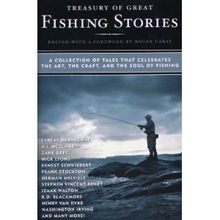In the realm of angling, there are few things more satisfying than seeing the line tense and the reel start to whirl as your lure meets the fate of a fish's interest. Whether you're a seasoned angler or a budding fisherman, the secret to successful hooking lies in the mastery of certain techniques. In this article, we delve into the essential hooking skills that have earned the title of "Fishing Star."
Understanding the Hook
Before we can effectively use hooking techniques, it's crucial to understand the basics of the hook itself. A hook is designed to catch and hold onto the fish's mouth, often using barbs and sharp edges. The most common types of hooks include the J-hook, the Aberdeen, and the Mustad, each with its own strengths and applications.
The Right Equipment
The first step in hooking success is ensuring you have the right equipment. This includes selecting the appropriate hook size, length, and style for the fish you're targeting. The size of the hook should correspond to the size of the bait you're using and the size of the fish you hope to catch.
The Hook Set
The hook set is the moment of truth where the fish either becomes a catch or a story. Here are some key techniques to master the hook set:
- Timing: Wait for the fish to take a full mouthful of bait before setting the hook. This often requires patience, as it's tempting to set immediately upon feeling a tap.
- Hand Position: Hold the rod with a relaxed grip, allowing the line to flow naturally. Use the thumb and forefinger to gently squeeze the rod, preparing for the set.
- Reeling: Start reeling in as you set the hook to help pull the fish out of the cover or structure where it may be hiding.
- Snap or Lift: Depending on the type of fishing, you might choose to snap the rod upward quickly or lift it smoothly to set the hook.
The Natural Presentation
The most effective hooking often occurs when the fish thinks it's catching something. Here are some techniques to achieve a natural presentation:

- Mimicry: Use lures that mimic the movements and appearance of the fish's natural prey. This can increase the chances of the fish taking the bait.
- Subtlety: Move your lure slowly and methodically. Sometimes, the simplest presentations are the most effective.
- Scent: Applying a natural scent to your bait can attract fish and encourage them to take the bait.
Hooking Techniques for Different Species
Different fish species may require different hooking techniques:
- Bass: Bass are often caught on topwater lures or soft plastics. A quick, upward snap is effective for setting the hook on topwater lures, while a gentle pull or a slight pause on soft plastics can work well.
- Crappie: Crappie are delicate and can be easily scared off. A gentle hook set is often the best approach, especially when using tiny jigs or spinners.
- Salmon: Salmon are powerful and require a firm hook set. Once the fish takes the bait, quickly lift the rod to set the hook deep in the fish's mouth.
Hooking Safety
Safety should always be a priority when fishing. Here are some tips to ensure a safe hooking experience:
- Practice Casting: Mastering the casting technique reduces the risk of losing the hook or accidentally hooking yourself.
- Use Caution: Be mindful of your surroundings and other anglers when retrieving your line to avoid hooking others.
- Retrieve Hooks Properly: Always retrieve hooks carefully to avoid injury to yourself or others.
The Art of Unhooking
Once you've landed a fish, the next skill to master is the art of unhooking. This involves:
- Positioning: Keep the fish's head up and the mouth open to prevent the hook from pulling out.
- Patience: Take your time to carefully work the hook out without damaging the fish.
- Gloves: Use gloves to protect your hands from sharp hooks and the fish's fins.
Conclusion
The techniques of the Fishing Star are not just about luck; they are the result of skill, practice, and a deep understanding of the fish and the environment. By mastering the hook set, natural presentation, and the nuances of different species, you too can become a star in the world of angling. Remember, the true essence of fishing is not just about catching fish, but about enjoying the experience and respecting the creatures that grace our waters. Happy fishing!












